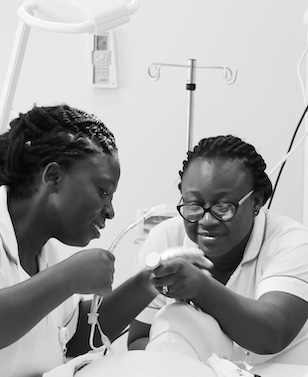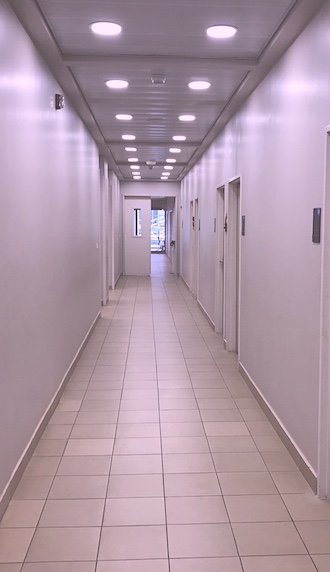| Events
UGMC Staff receive training on Corona virus
A cross section of employees of the University of Ghana Medical Centre (UGMC) comprising clinical and non-clinical staff have been trained on necessary protective measures to take to shield themselves from being infected with the deadly Coronavirus.

A cross section of employees of the University of Ghana Medical Centre (UGMC) comprising clinical and non-clinical staff have been trained on the signs and symptoms, mode of transmission, risk factors and the necessary protective measures to take to shield themselves from being infected with the deadly Coronavirus.
The training which took place on Thursday 20th February 2020 at the Medical Training and Simulation Centre of the Facility, was organized by the Head of Emergency Medicine, Dr. Godfred Takyi (Emergency Medicine Fellow) under the leadership of the Director of Medical Affairs, Dr. Kwame Anim-Boamah, and with the support of management.
Topics covered were the current knowledge on the epidemiology of the coronavirus, protective measures and practical demonstration of how to wear and remove
Personal Protective Equipment (PPE).
Personal Protective Equipment (PPE).
The first presentation on the topic “Protective Measures and Practical Demonstration of Personal Protective Equipment” (PPE) was expertly delivered by Dr. Lawrence Ofori-Boadu, an Emergency Physician and a Deputy Director at the Institutional Care Division of the Ghana Health Service.
Dr. Ofori Boadu reminded the clinical staff on the protocols for wearing protective attire to avoid getting infected with the virus if they came into contact with suspected or confirmed cases. He stated that some of the protective attire included two gloves (the standard examination glove and the long glove that ends at the elbow after wearing or gynaecological-like glove), a gown to ensure that no skin was exposed, surgical masks or respirators, goggles or face shield and boots. He added that all reusable attire needed to be sterilized in 0.5 chlorine and stated that safety precautions that staff could take to avoid getting infected with the virus included constant handwashing with soap or 0.05 chlorine, not touching their faces with their hands and the frequent use of hand sanitizers. Dr Ofori-Boadu also stressed on the strict application of the Infection Prevention and Control (IPC) measures.
Dr. Donne Ameme, an Epidemiologist, from the School of Public Health, University of Ghana, Legon, presented on the epidemiology of the Virus. According to Dr Ameme, after the initial outbreak of the infection in China, 25 countries had so far confirmed COVID-19 in patients at the time of the training and this made the issue one of global concern. According to the Public Health expert, about 80% of those who died from COVID-19 were over the age of 60 and 75% of them had pre-existing health conditions such as cardiovascular diseases and diabetes. People of all ages can be infected, Older people, and people with pre-existing medical conditions (such as asthma, diabetes, heart disease) appear to be more vulnerable to becoming severely ill with the virus.
He encouraged all participants at the lecture to take time to visit the WHO website frequently to receive updates on the virus and revealed that currently, The Greater Accra Hospital and The Tema General Hospital have been designated as treatment centres for confirmed cases. The LEKMA Hospital, Police Hospital and the Ga-South District Hospital were being assessed for possible addition to the designated centres for case management. Dr. Ameme further informed the audience that measures had been put in place by the government to ensure the safety of travellers entering Ghana from the Kotoka International Airport (KIA) and other entry points to the country.


